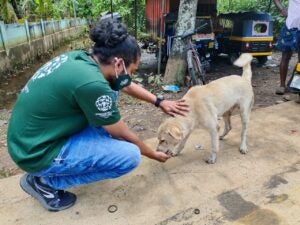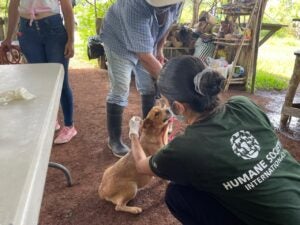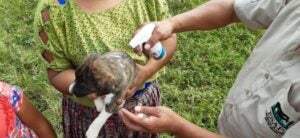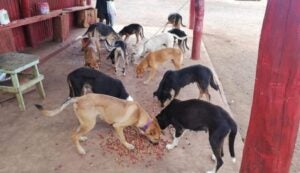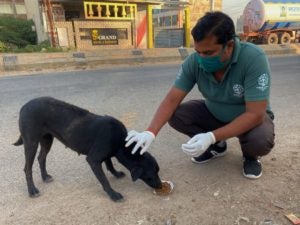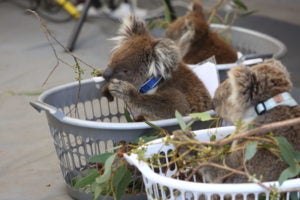
BRUSSELS—Animal charity Humane Society International/Europe applauds the European Commission for advising all EU Member States to relax veterinary paperwork requirements for the dogs, cats and other companion animals travelling with refugees seeking safe passage in EU Member States.
In a communication shared with HSI and other members of the EU Animal Welfare Platform, Bernard Van Goethem, director of Crisis Preparedness in food, animals and plants at the Directorate-General for Health and Food Safety, wrote to the Chief Veterinary Officers and Permanent Representations of all Member States, saying:
“In view of the concerning developments of the situation in Ukraine and to avoid possible difficulties with refugees coming from Ukraine with their dogs, cats or other pet animals… the Commission suggests that to ease the process and address appropriately this emergency situation, Member States may develop permit arrangements that would apply to pets travelling with refugees and authorise their entry without a prior individual application for a permit. This approach would allow you to inform your staff at borders to ensure awareness and therefore avoid any problems.”
Ruud Tombrock, executive director for Humane Society International/Europe, says: “We are deeply concerned for the people and animals impacted by Russia’s invasion of Ukraine, and so we welcome the European Commission’s recognition that people fleeing the conflict care deeply about their companion animals as beloved members of their family and will want to keep them safe. Those seeking refuge will be greatly relieved to know that they can make evacuation plans to EU countries with their pets without unnecessary delay. This is a precedent setting compassionate stance from the EU that we very much hope will be replicated around the world during similar conflict situations. People should not have to jeopardise their own safety in efforts to prevent their animals from being left behind to fend for themselves.”
During any conflict situation, immediate focus will understandably be on human casualties, but animals can also become victims, suffering injury, loss of life or being left to fend for themselves during evacuations. An inability to transport animals has also hindered and delayed evacuations of people from conflict and disaster zones as people do not want to leave their beloved animals behind. While HSI does not have operations in Ukraine, we are closely monitoring the situation including reaching out to local groups to assess if and how we can best support those in need.
ENDS
Media contacts:
- Yavor Gechev, EU communications director: ygechev@hsi.org
- Wendy Higgins, director of international media: whiggins@hsi.org

